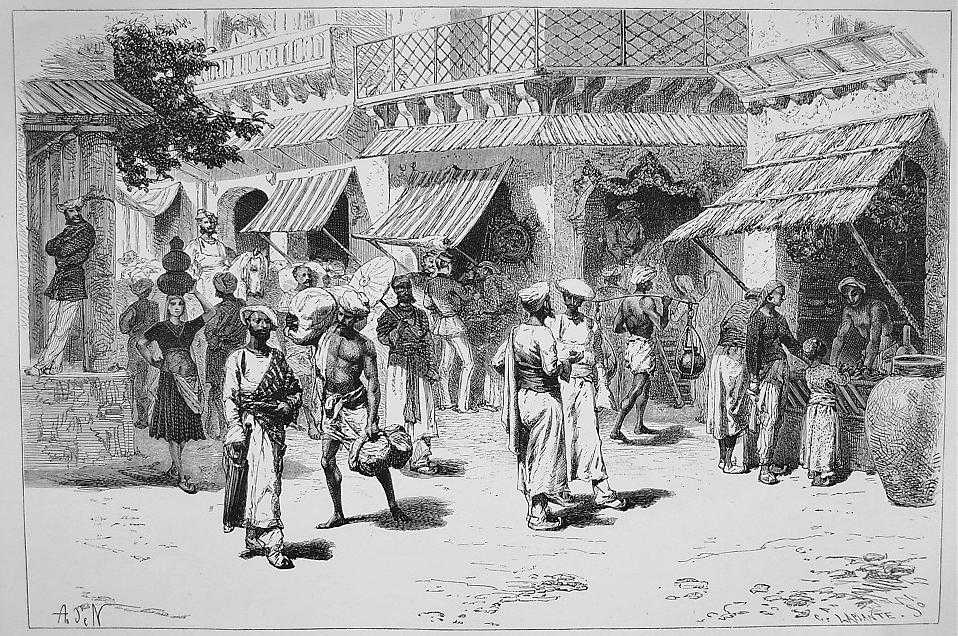FWP:
Nazm wants to restrict the meaning of havā to desire alone, but I don't see why. Others may seek the air of the garden, but the lover, a natural contrarian who never likes what normal people like, also devotedly seeks the air of the roadside, the urban landscape of passion, marginality, and desire. It's the city's version of the desert. Madmen and lovers wander restlessly through the streets, and drunkards often collapse by the side of the road. The notion of āvārah phirnā , to wander like a vagabond, is deeply embedded in the ghazal world. Here the bier-carriers are told to take the bier and wander [phirnā] with it, letting the lover enjoy the atmosphere [āb-o-havā] of the streets for the last time. On havā see also {8,3}.
And, of course, one of those streets is the beloved's, so that the lover could well be said to give up his life for the air/desire of that street. Bekhud Dihlavi offers a clever idea-- that this is the lover's way of getting his bier carried through the beloved's street, while discreetly (and jealously) not telling anyone which street it is.
This is one of the 'dead lover speaks' verses; for others, see {57,1}.
Note for meter fans: In the first line, the oblique plural galiyoñ (ga-li-yo;N) is required to become galyoñ (gal-yo;N) to accommodate the meter.

Nazm:
havā means 'longing', and 'street' refers to the street of the beloved. (17)
== Nazm page 17